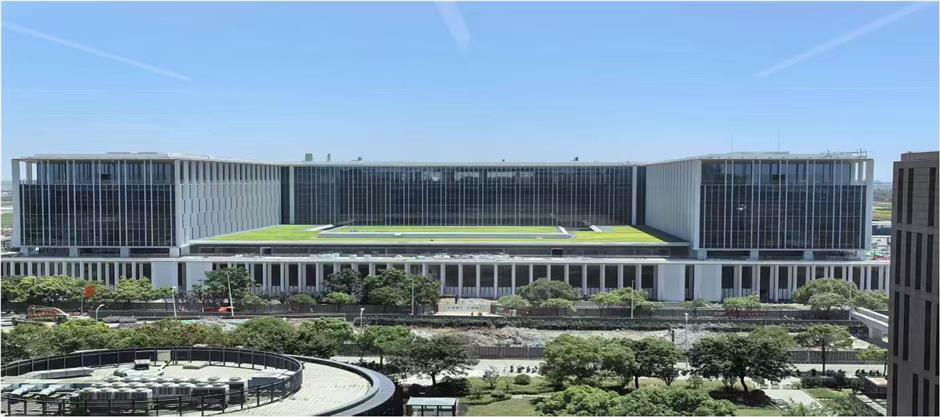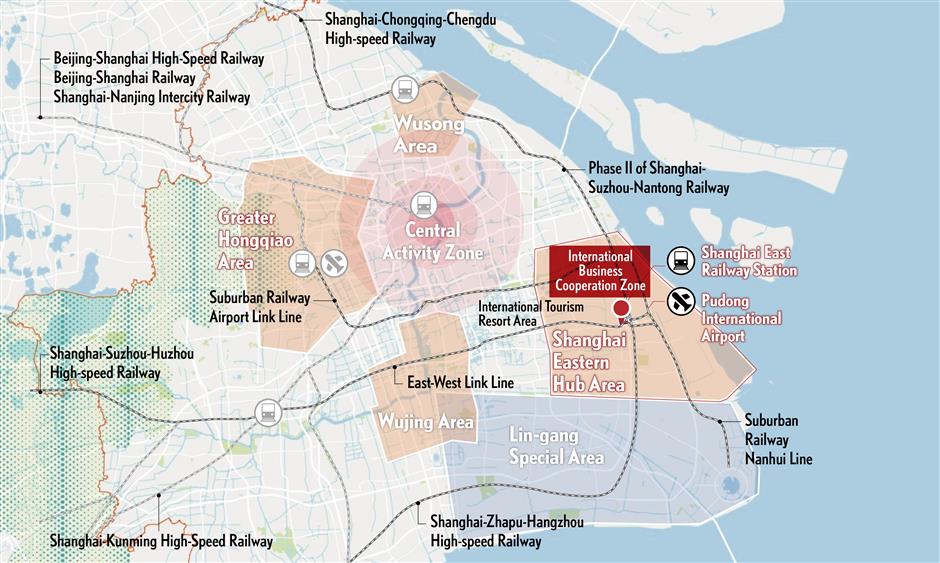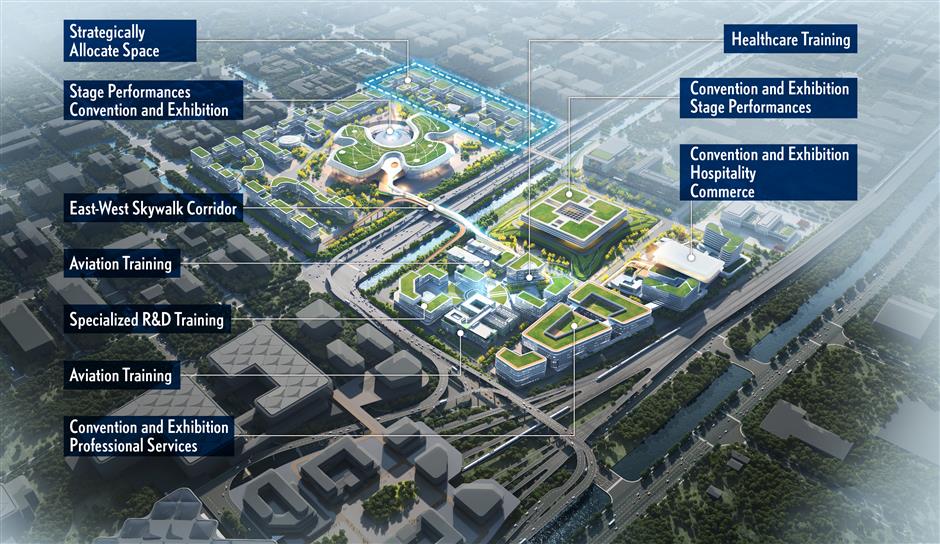
政府新闻
上海免签证商务区将于12月开始试运营 2025-10-12

The Eastern Hub International Business Cooperation Zone being under construction
Shanghai's Eastern Hub International Business Cooperation Zone, a pioneering international business district near the Pudong airport, is set to begin trial operations in December.
The project, approved by China's State Council in early 2024, represents a landmark effort to strengthen global connectivity and foster economic openness.
Positioned between Pudong International Airport and the under-construction Shanghai East Railway Station, the zone spans 880,000 square meters, roughly the size of 120 football fields.
Together, the two transport hubs will form a major gateway for international commerce and talent exchange, further enhancing Shanghai's role as a global economic center.

The Eastern Hub International Business Cooperation Zone is conveniently connected with the airports and railway stations in Shanghai.
The visa-free policy is among the most significant innovations. Foreign visitors invited by registered enterprises will be able to enter the district directly without applying for a Chinese visa in advance.
They can stay for up to 30 days, with the option to extend, and can complete onward immigration procedures inside the zone if they wish to travel elsewhere in China.
The streamlined system is expected to save time, reduce costs, and provide a more efficient experience for international business travelers.
This is China's first visa-free international business zone of its kind. It will integrate trade in goods and services, mobility of people, and professional support within a single regulatory framework.
Customs procedures have been simplified to allow tariff-free testing, pilot e-commerce operations, and offshore business activities.
Companies can lower operational barriers by bringing in materials, equipment and personal items with minimal checks.
Officials emphasize that the zone will serve as a year-round platform, enhancing events such as the China International Import Expo.
By enabling continuous trade and exhibition activities, it will strengthen Shanghai's role as a hub for international investment and cooperation.
The zone adopts a flexible space layout. It is divided into modular units that can be reconfigured to support evolving industries.
A multi-level transport system will connect the business area with the airport and railway station through highways, underground routes and a special "airside corridor," allowing seamless movement of people and goods.
Smart infrastructure will include automated freight systems, driverless shuttles and digital management platforms for energy, traffic, and security.
Pedestrian pathways and green spaces will dominate much of the zone, ensuring a balance between urban activity and environmental sustainability.

The Eastern Hub International Business Cooperation Zone adopts a flexible space layout, divided into modular units that can be reconfigured to support evolving industries.
The zone is planned around three core functions: facilitating international business exchange, hosting high-end exhibitions and offering advanced training services.
Office and conference spaces will be equipped with multilingual interpretation and smart meeting technology.
Plans are underway to develop training programs in digital trade, artificial intelligence and international regulations in collaboration with universities and industry associations.
Complementary services will encompass foreign-invested hospitals, international-standard medical facilities and firms specializing in legal, financial and consulting services, all designed to address the needs of global businesses.
The zone will be developed in phases: the trial operations in December will be followed by full enclosure with core facilities by 2028, and the entire project is scheduled for completion by 2030.
Source: Shanghai Daily

